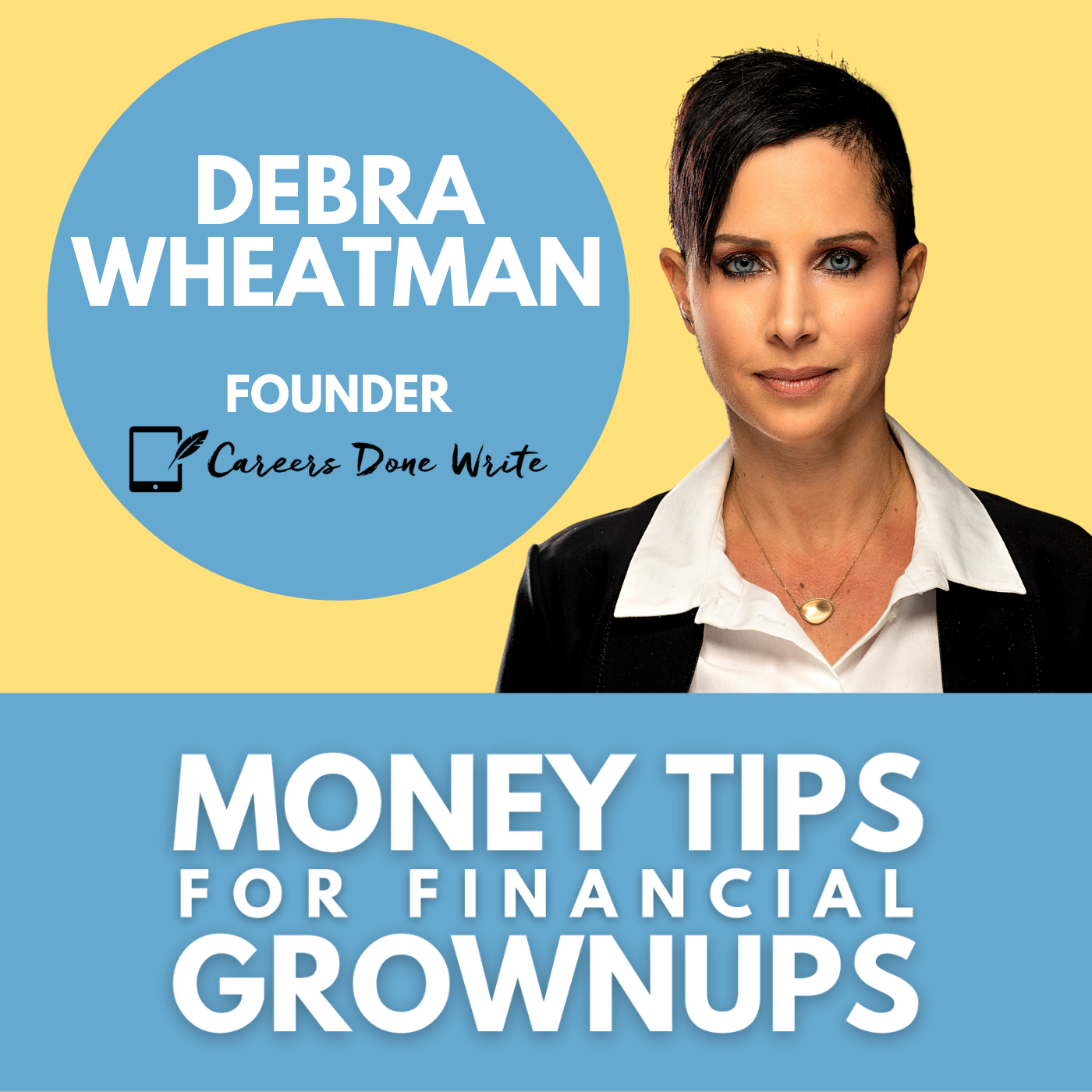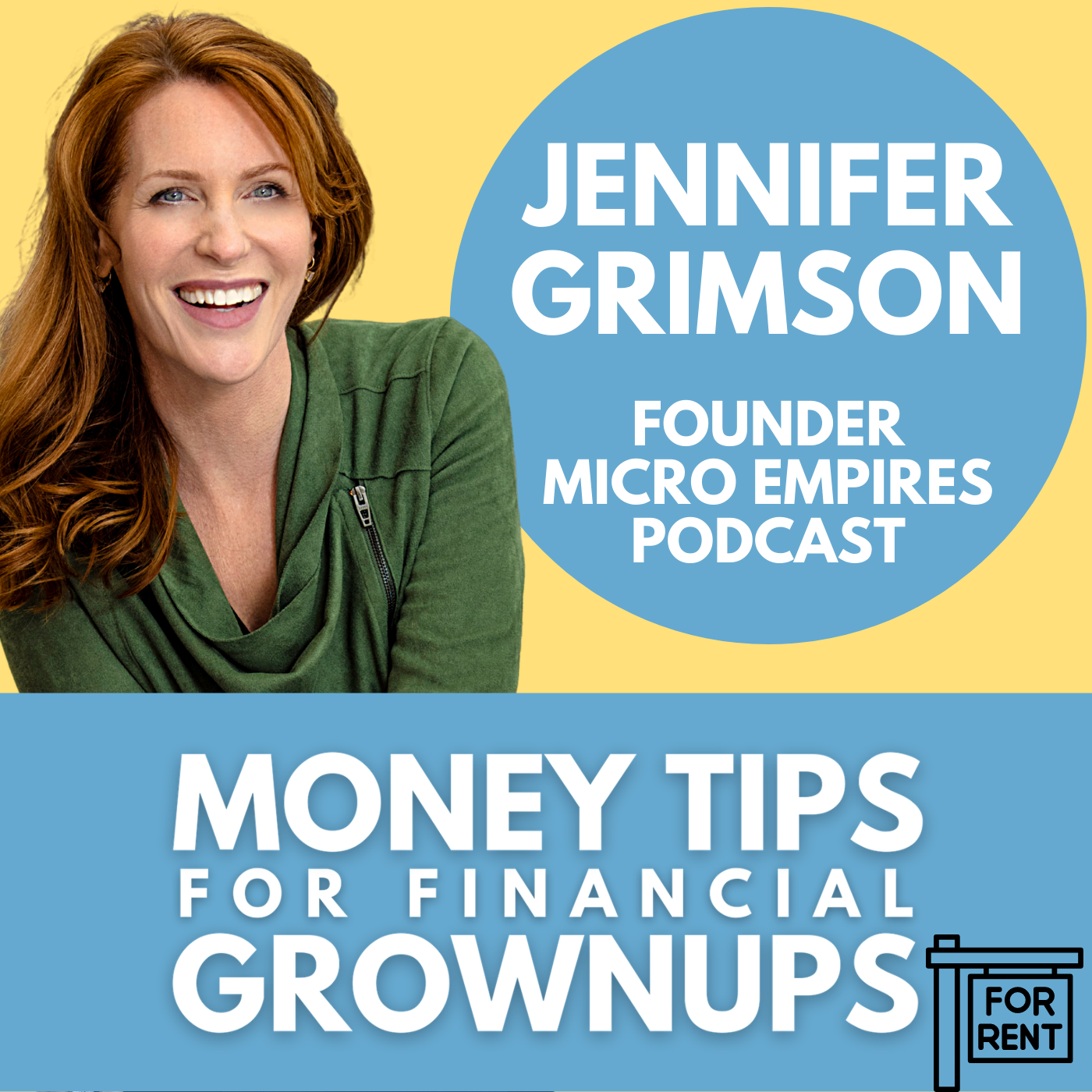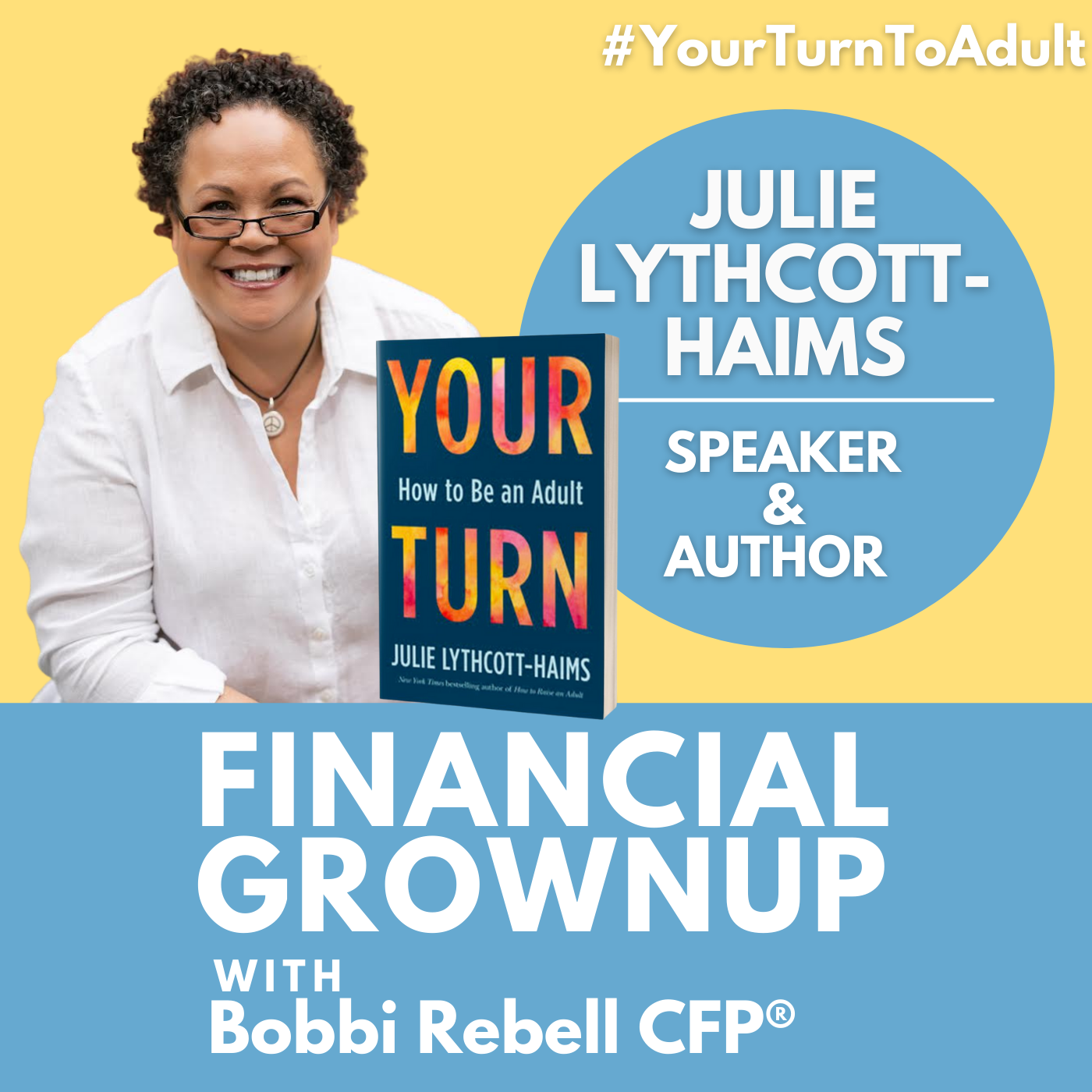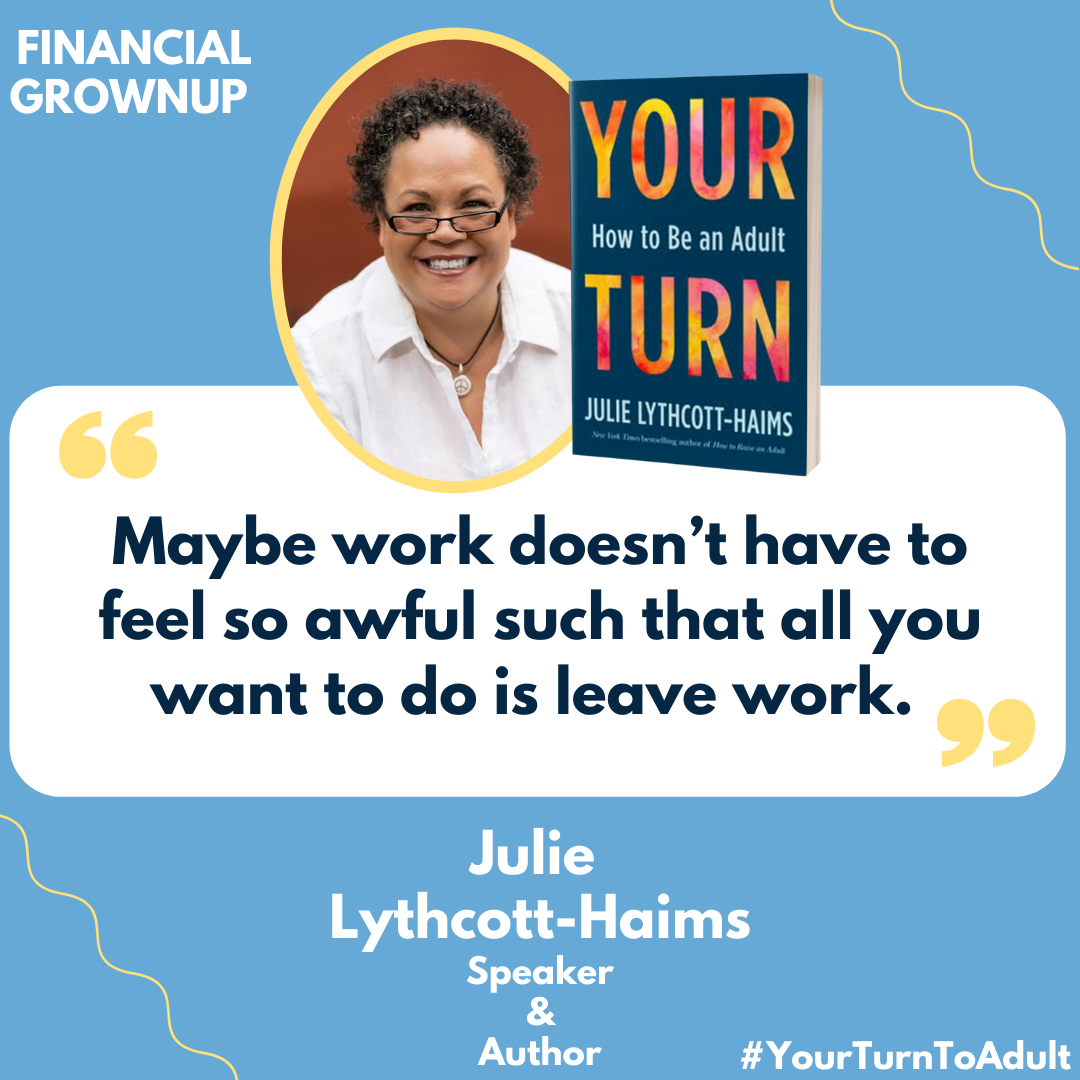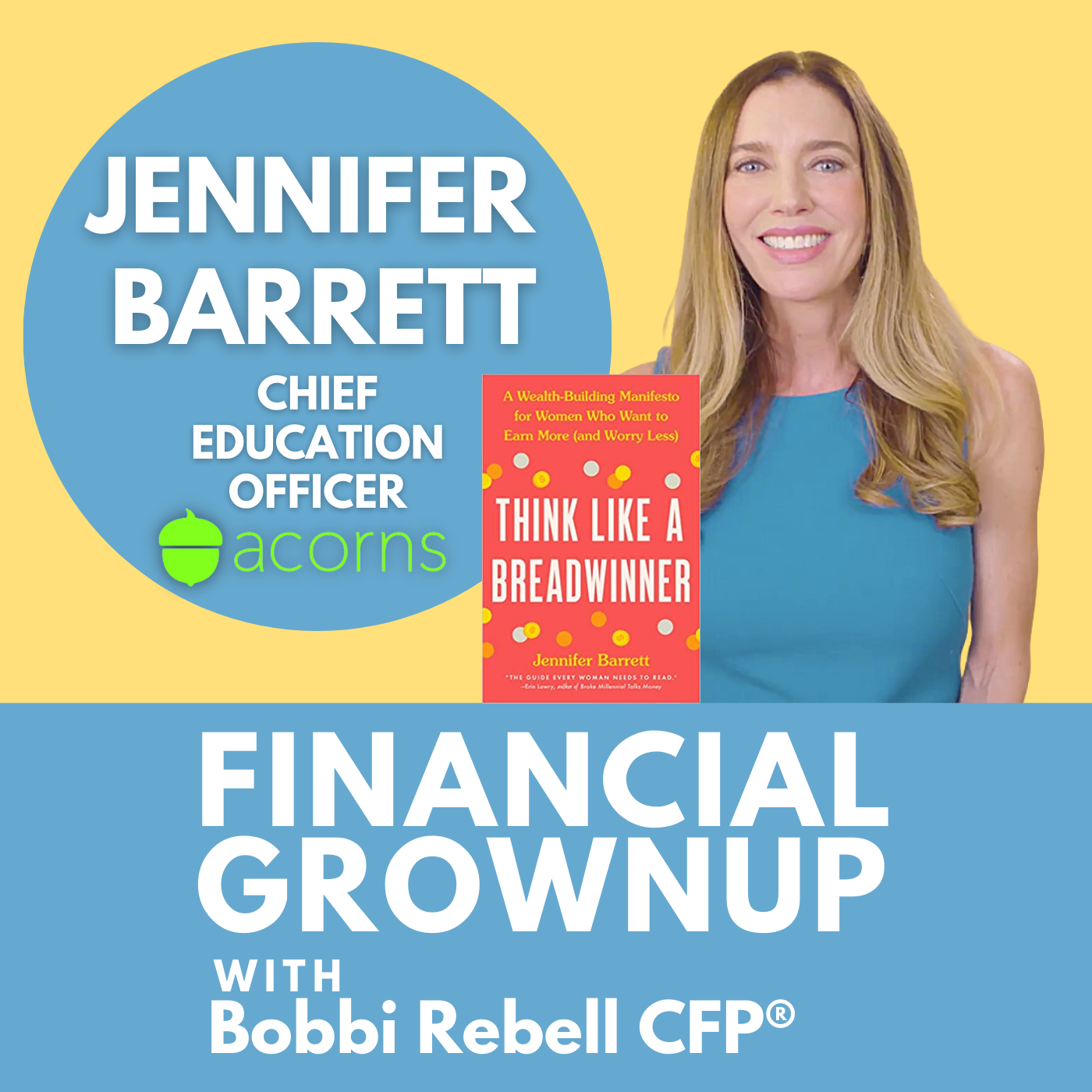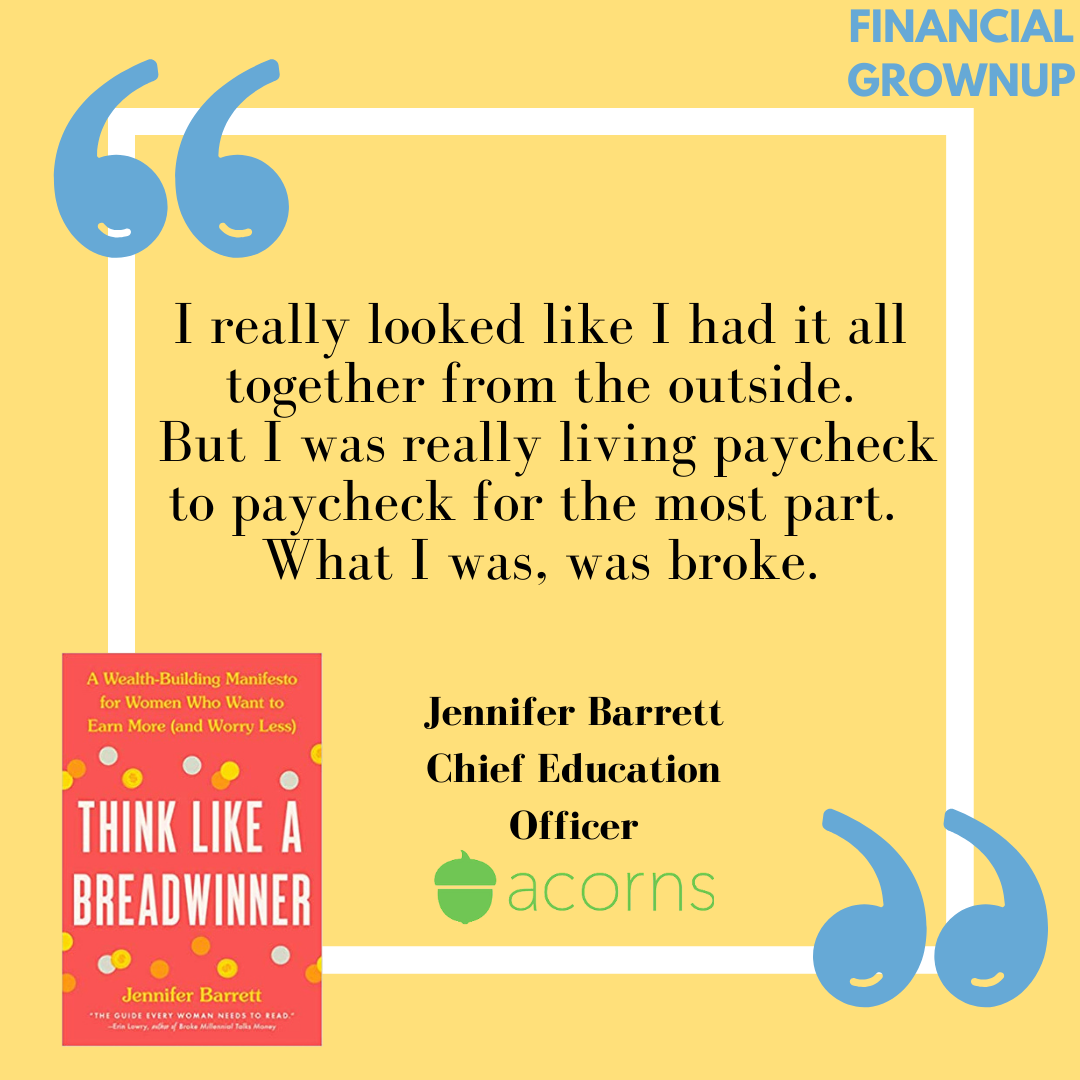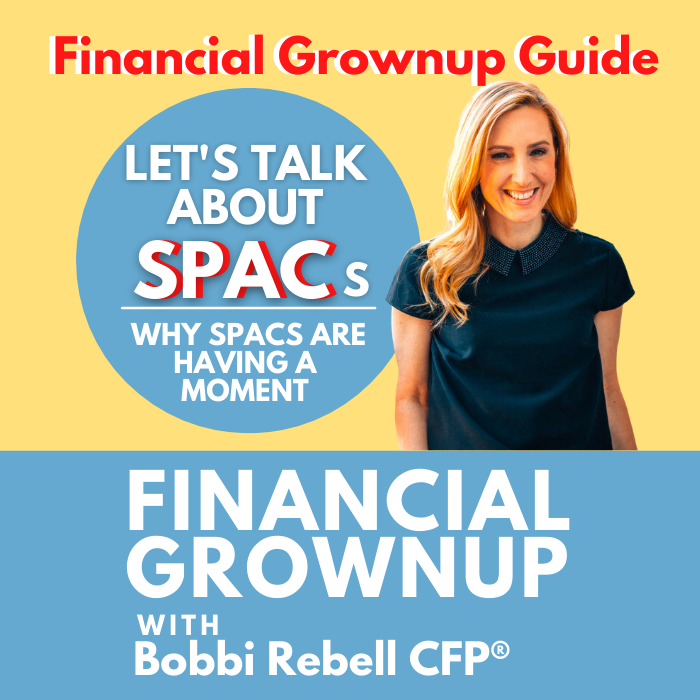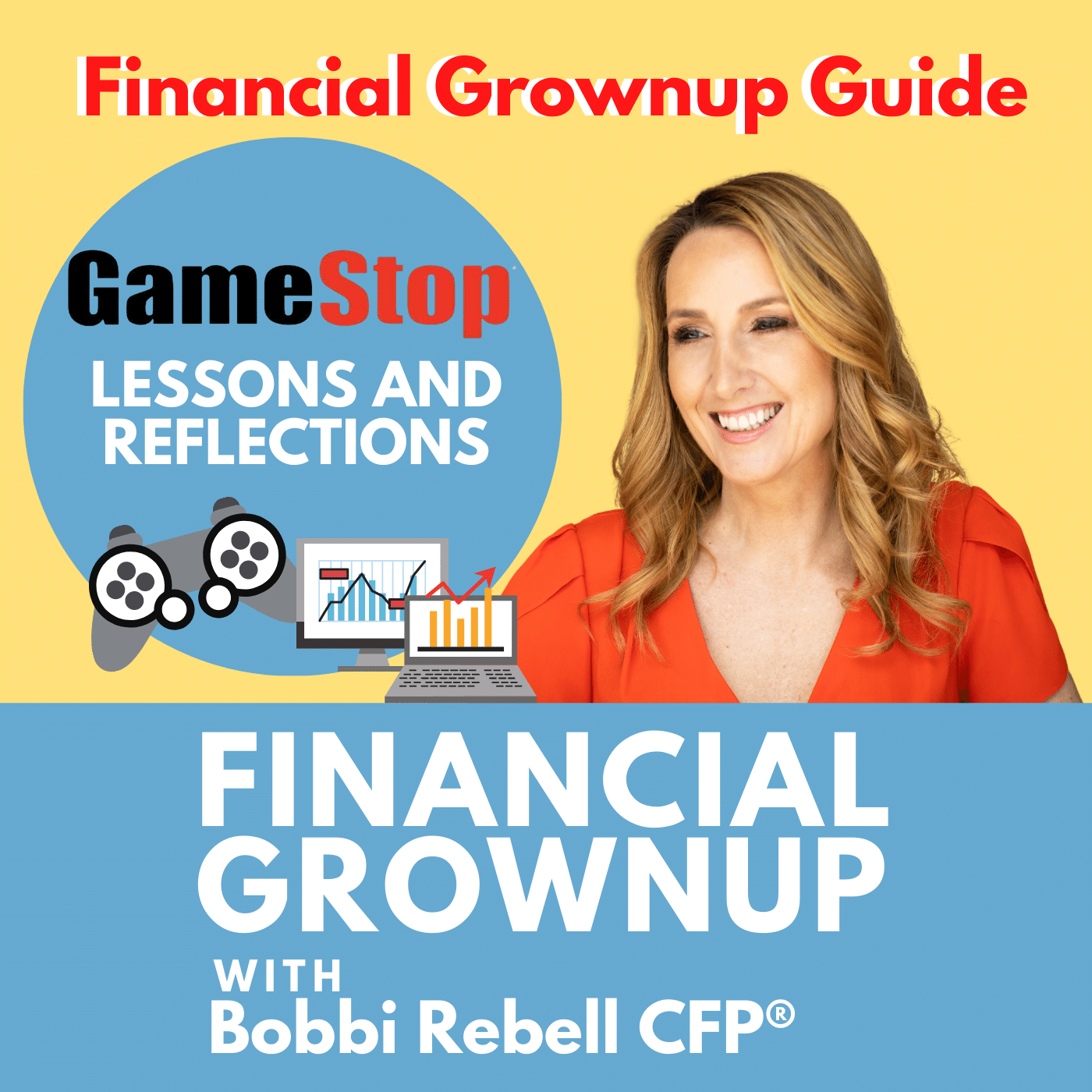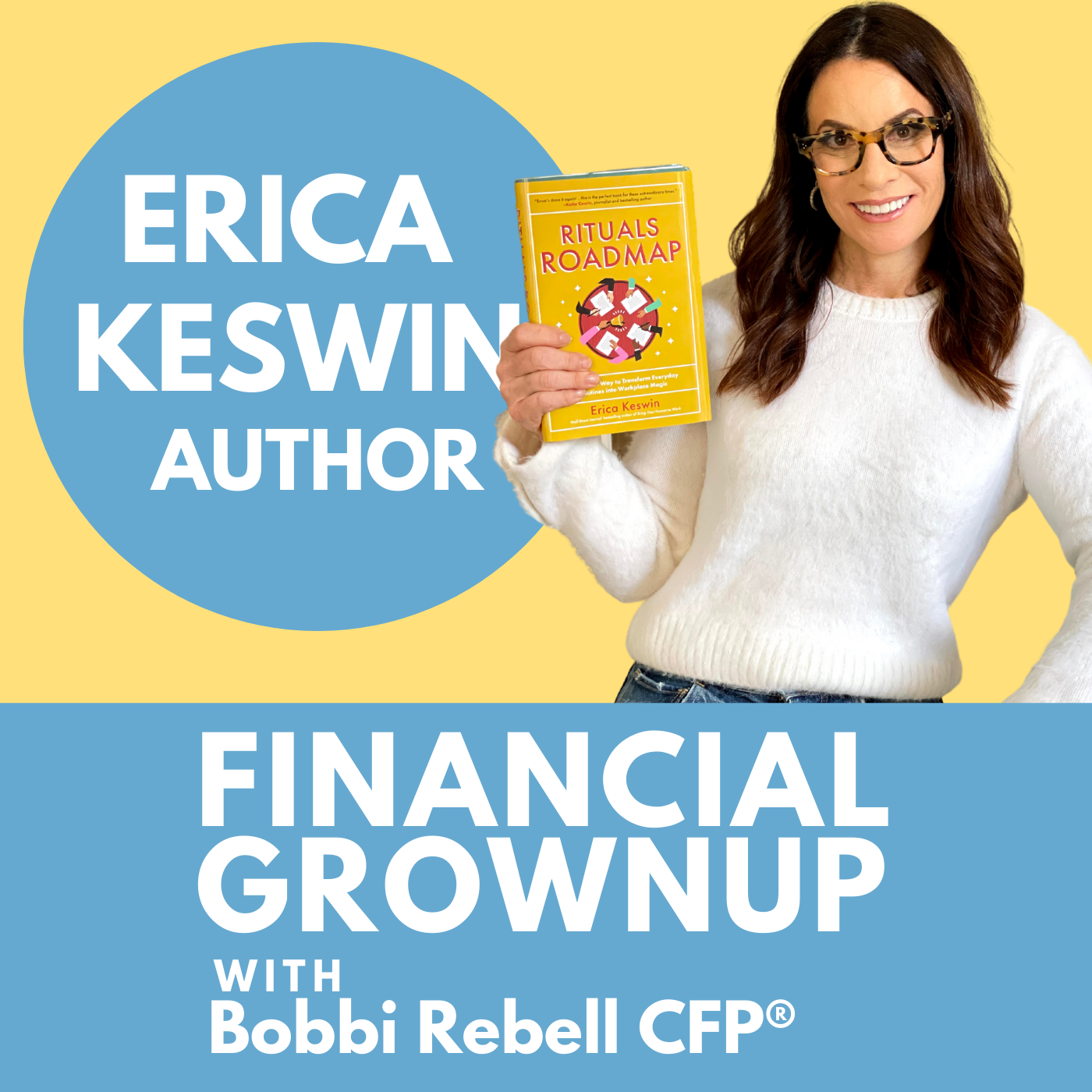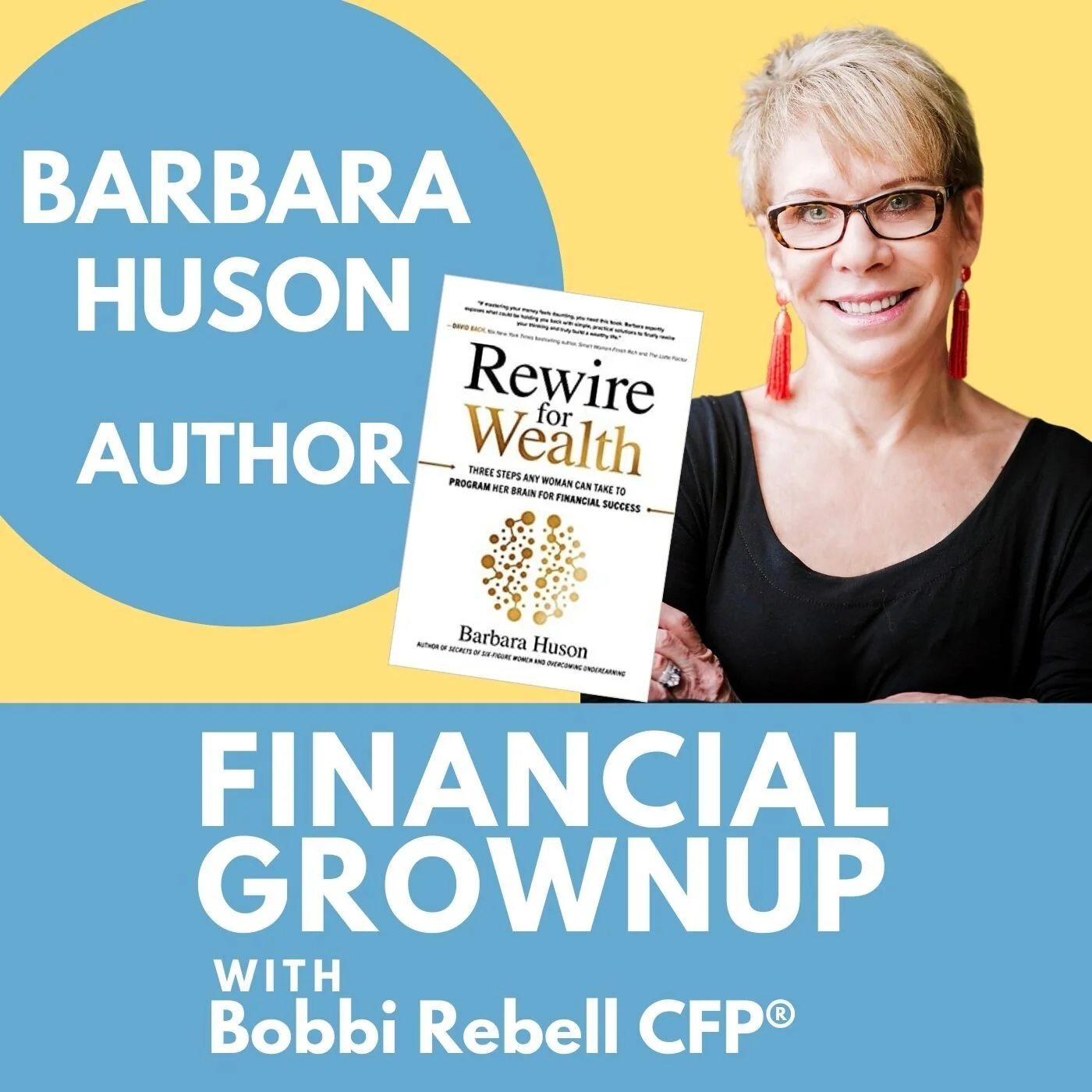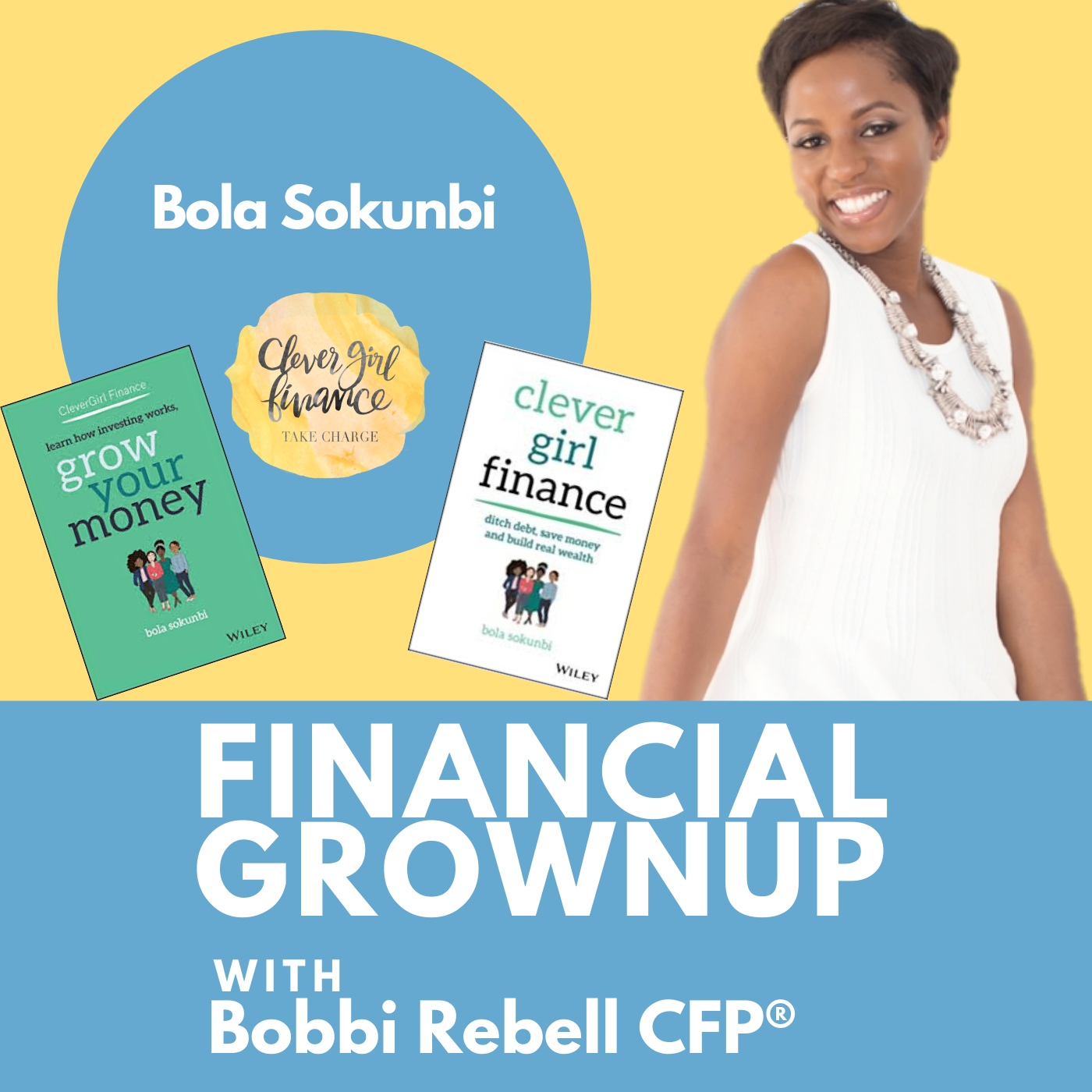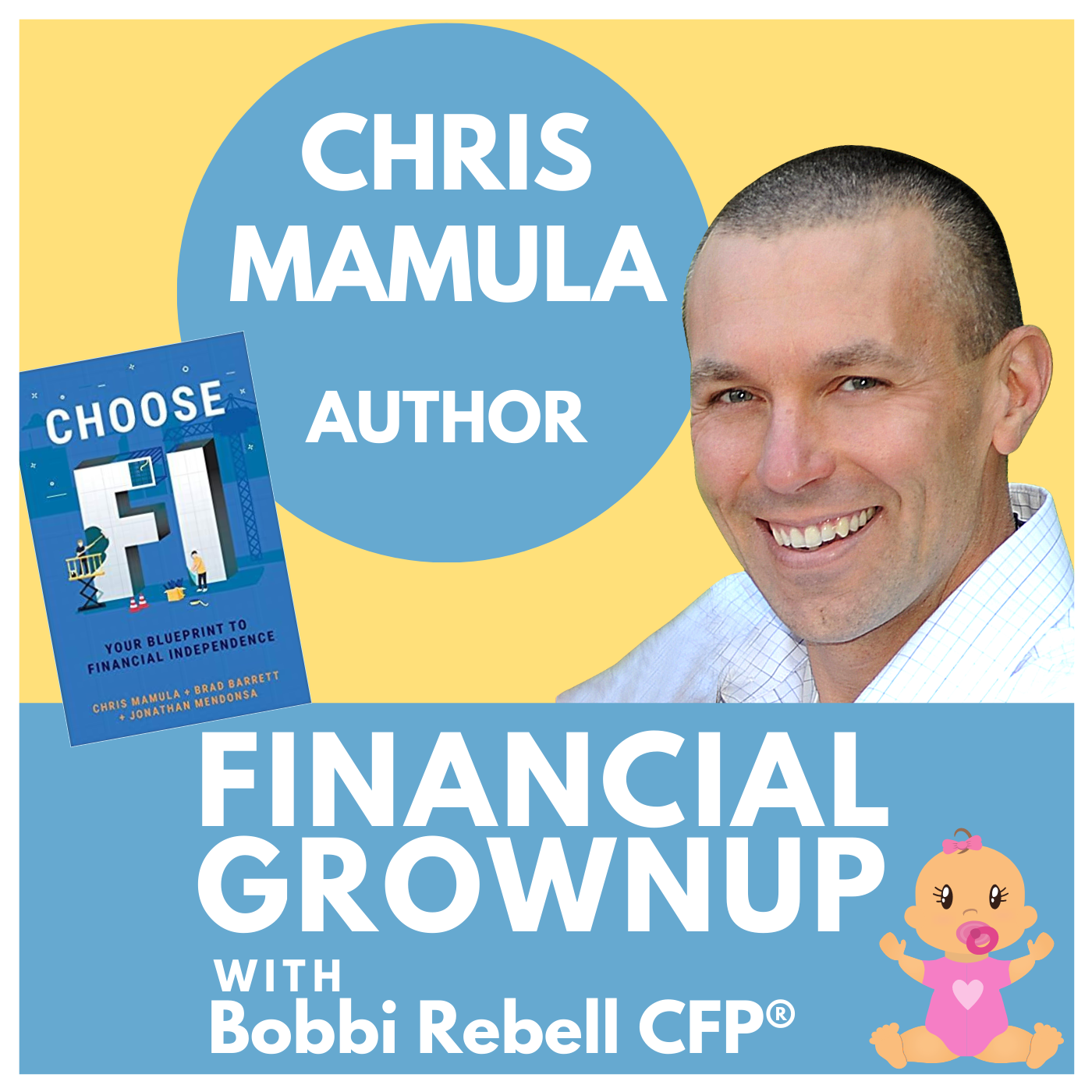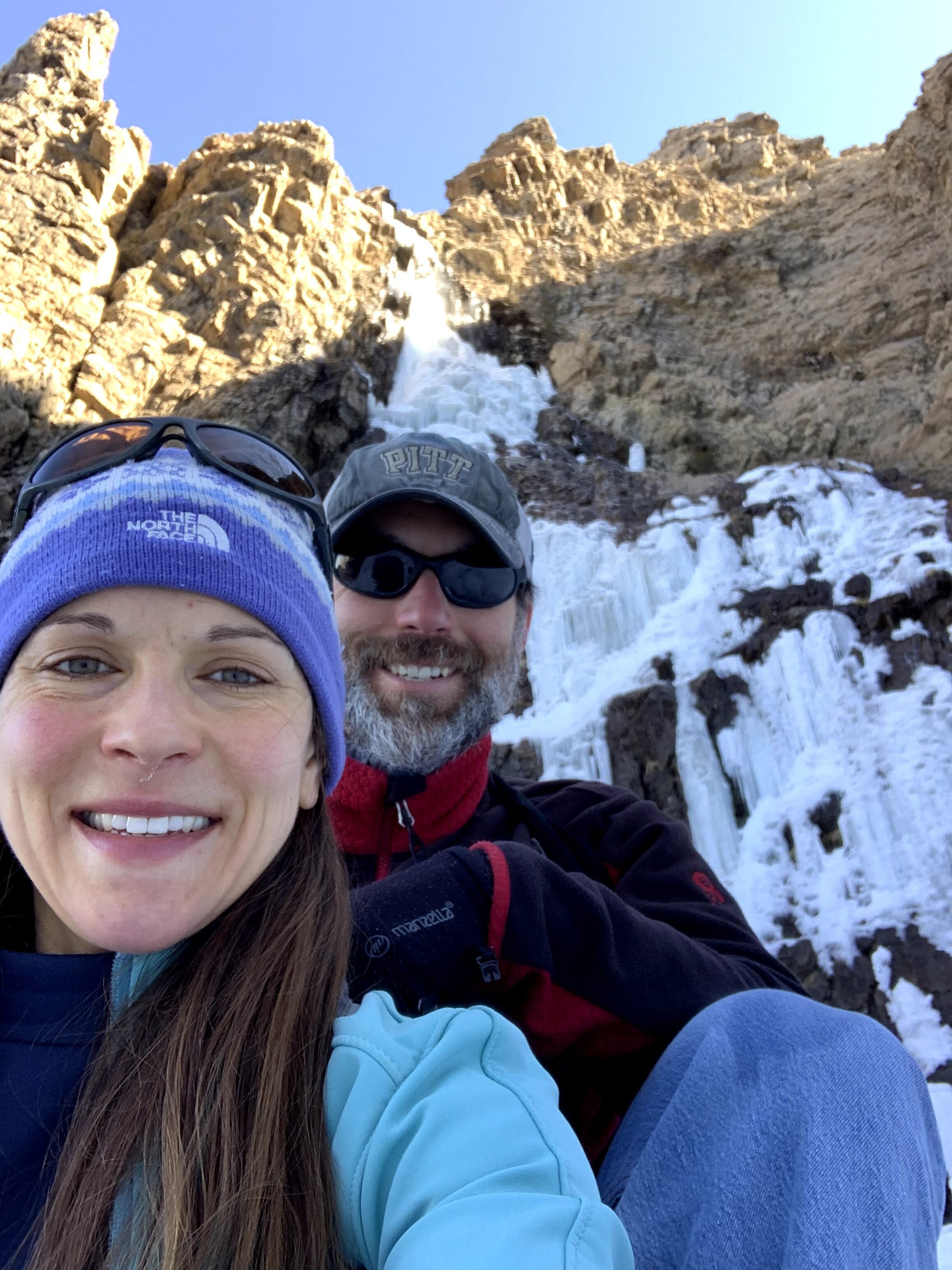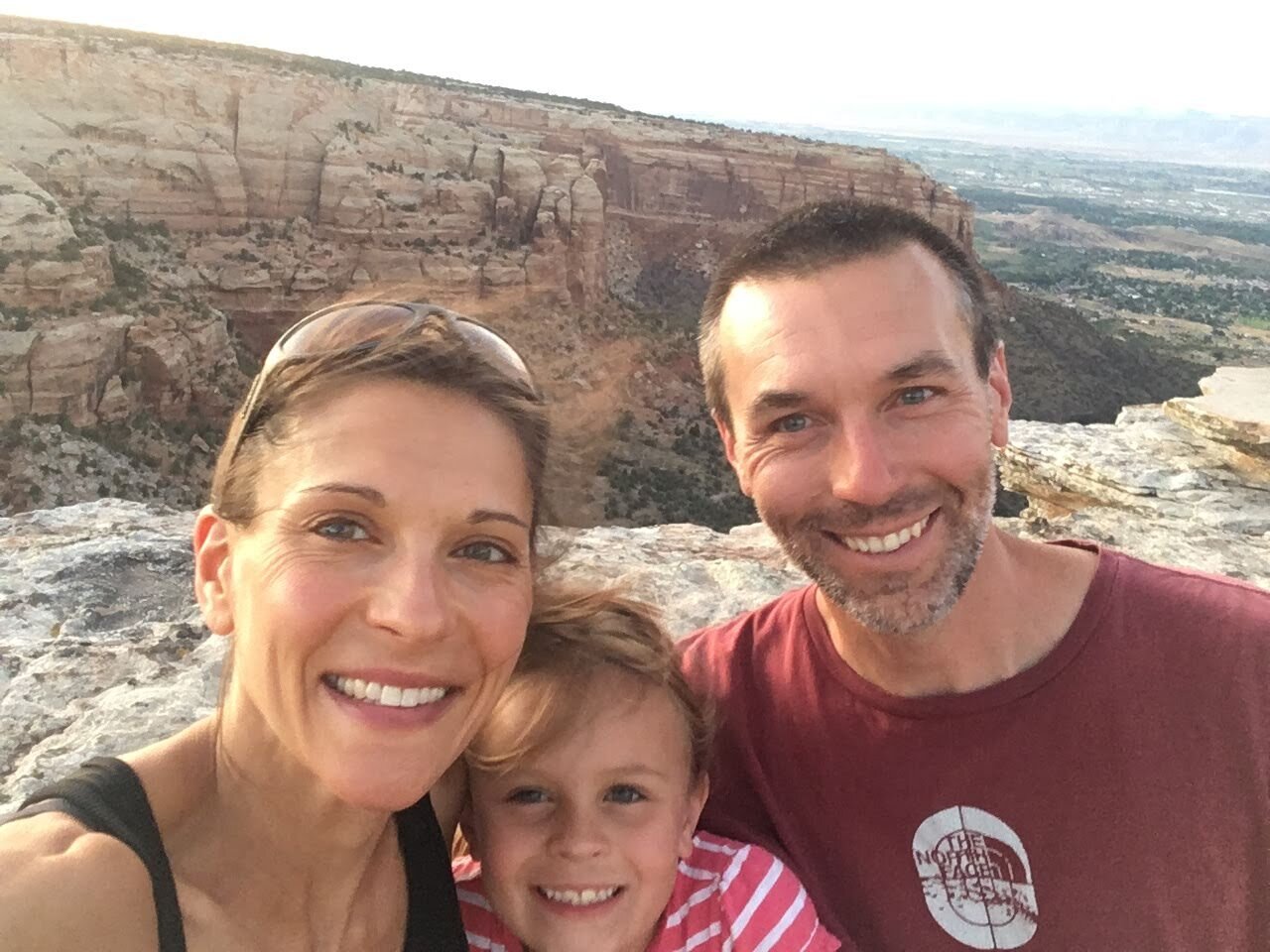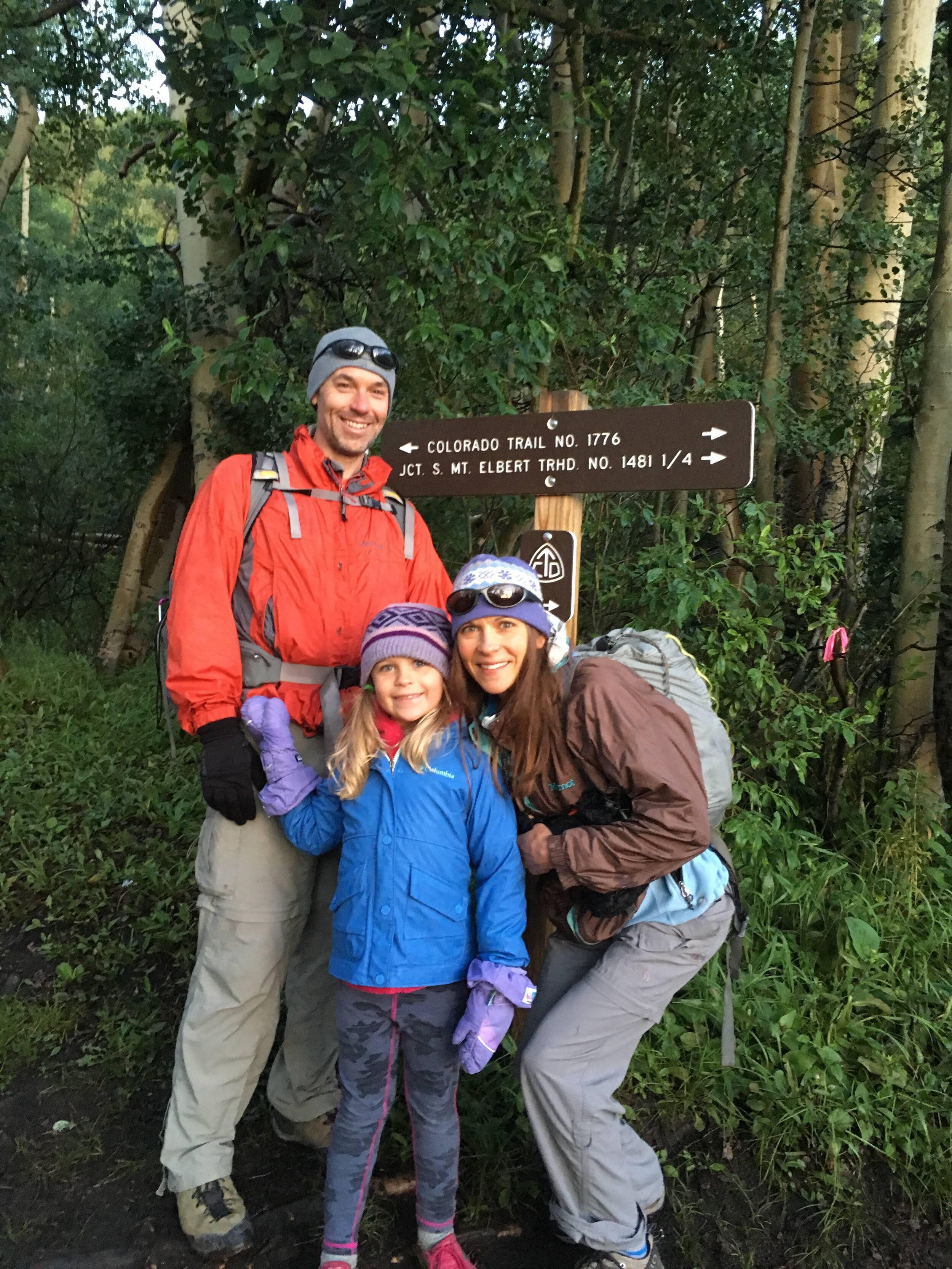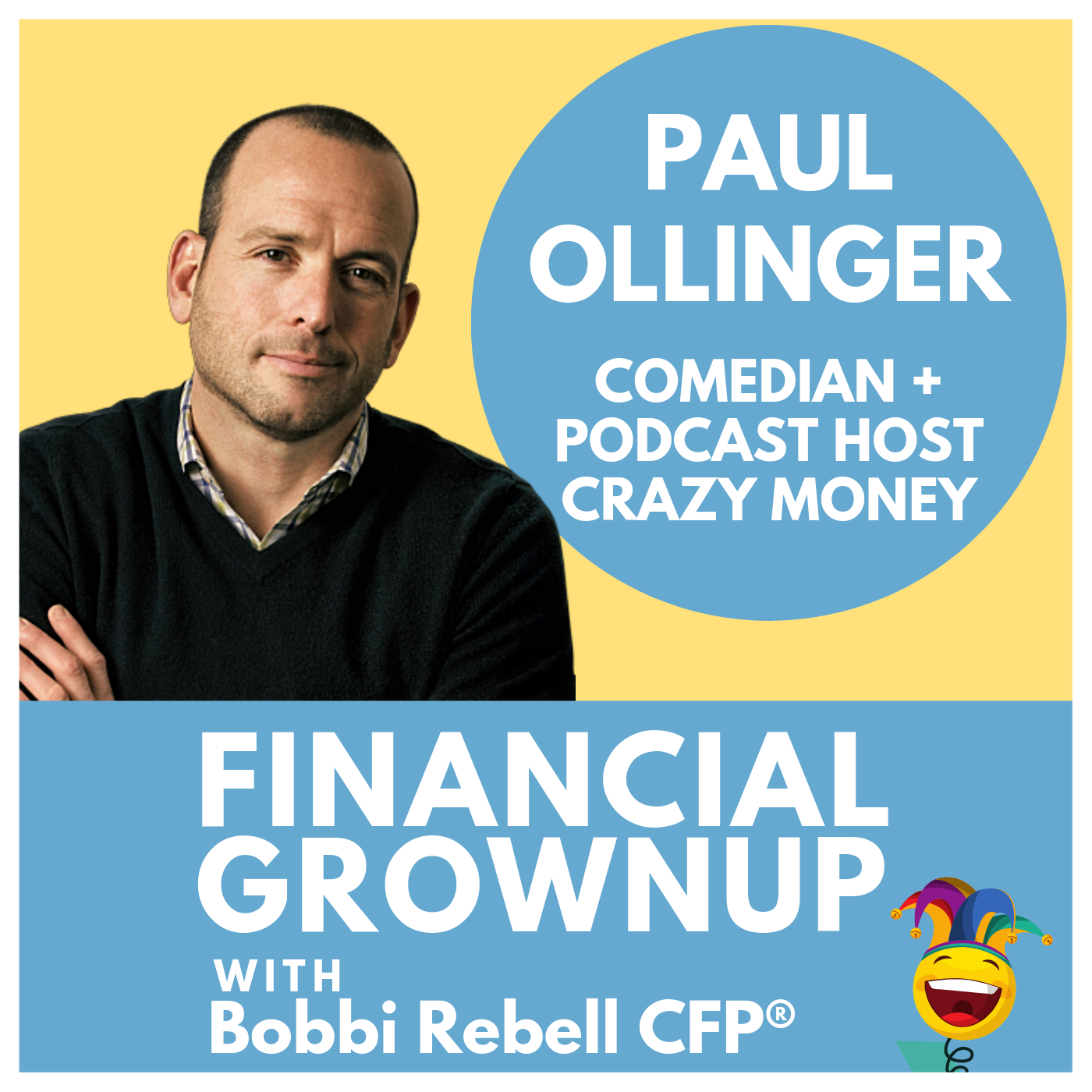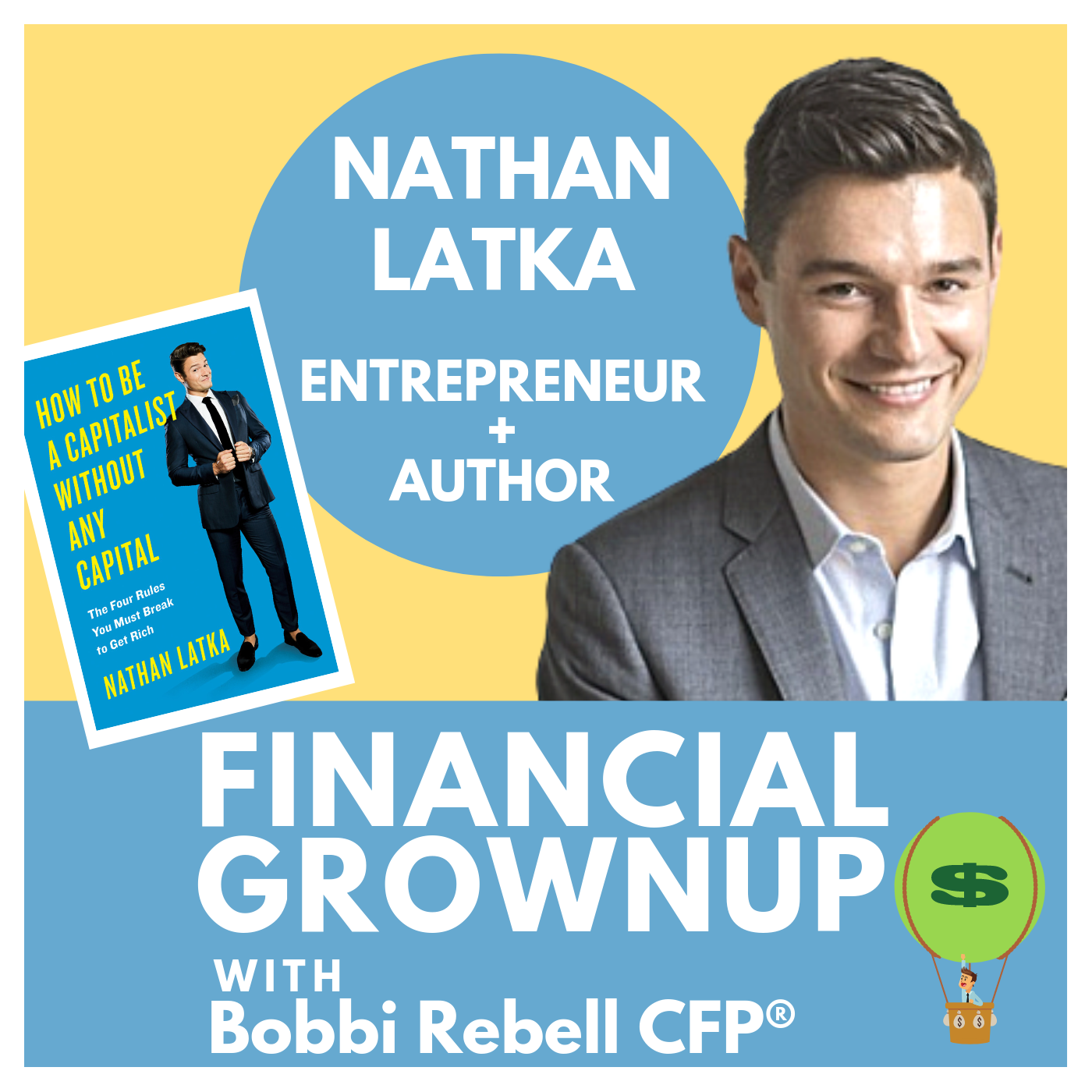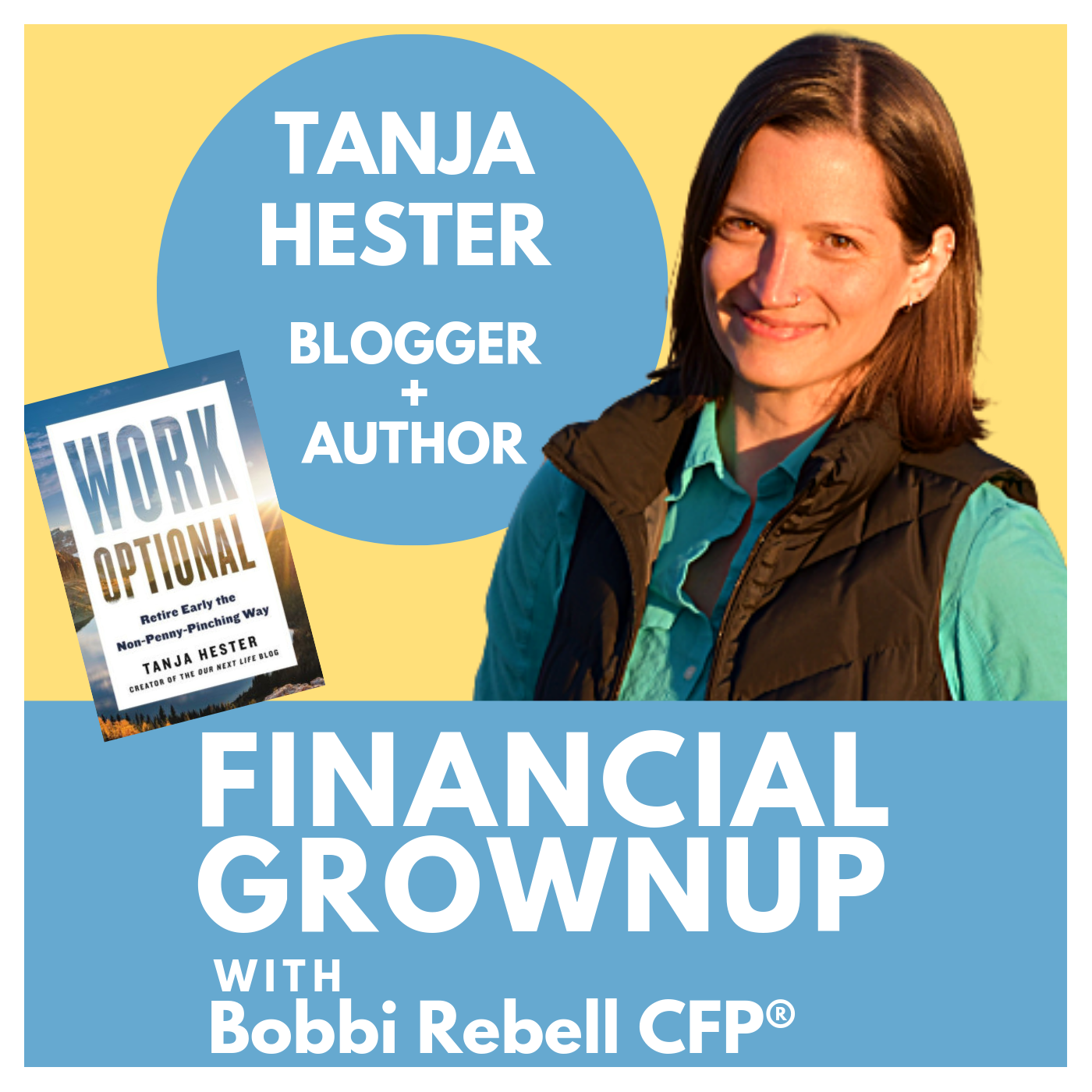Careers Done Write’s Debra Wheatman shares her best tips for Grownups to level up their careers in the new year.
Career Tips for 2022
Write down a list of these things so that you can visualize them.
Think about what you would like to achieve in the coming year.
Create a plan for getting there. Perhaps you’re looking to be promoted, switch industries, or change careers altogether.
Do you feel like you’re too busy to focus on managing your career and your brand?
Another thing that will help you in the coming year is single-tasking.
How are you at building relationships?
Challenge the status quo.
Follow Debra!
Instagram - @careersdonewrite
Facebook - @CareersDoneWrite
Twitter - @debrawheatman
LinkedIn - @debrawheatman
YouTube - @careersdonewrite
Website - CareersDoneWrite.com
Follow Bobbi!
Instagram - @bobbirebell1
Twitter- @bobbirebell
LinkedIn- Bobbi Rebell
Website- http://www.bobbirebell.com
Did you enjoy the show? We would love your support!
Leave a review on Apple Podcasts or wherever you listen to podcasts. We love reading what our listeners think of the show!
Subscribe to the podcast, so you never miss an episode.
Share the podcast with your family, friends, and co-workers.
Tag me on Instagram @bobbirebell1 and you’ll automatically be entered to win books by our favorite guests and merch from our Grownup Gear shop.
Full Transcript:
Bobbi Rebell:
Hey, grownups. Before we start the podcast, I want to talk to you about keeping things in perspective and remembering sometimes we just have to laugh it off. We need that. Life is full of grownup choices and it can be a lot so it's important to keep things in perspective and have a sense of humor. That's why I created Grownup Gear. It is super fun merch to celebrate adulting; t-shirt, sweats, mugs, I even have kitchen aprons for cooking. It lets everyone know that you are a grownup, or at least a grownup in progress, or at least you know someone who's a grownup. We even have the cutest baby gear from onesies to bibs that say things like, "I can't believe you are the grownup." The best gifts for new parents, birthdays, engagements, graduation, pretty much any occasion, even a great gift for yourself. Check it all out at grownupgear.com.
Debra Wheatman:
If you don't take charge of your career now and you don't prioritize the things that are important about your career and your ability to be financially independent, then you will likely suffer some of the consequences of those decisions later on in your life.
Bobbi Rebell:
You're listening to Money Tips for Financial Grownups with me, Certified Financial Planner Bobbi Rebell, author of How to be a Financial Grownup. And you know what, when it comes to money, being a grownup is hard. But together, we've got this.
Bobbi Rebell:
Hey friends, as you may have guessed from the opening sound bite, we're going to talk about careers. I have been having a bit of the career blahs lately. I sense a lot of people do as we are entering year three of the pandemic, which was supposed to be staying home 15 days to stop the spread. Yeah. Well it is what it is. So here we go.
Bobbi Rebell:
I decided we should do a little miniseries of career episodes for financial grownups starting with this week's guest, who's amazing. Her name is Debra Wheatman. She runs a company called Careers done Write, and Write is spelled W-R-I-T-E. Her genius is in the fact that Debra helps people not just figure out what they're good at and what they should be getting paid for, she also helps kind of package it all up so that your best attributes are front and center and help you land that dream job.
Bobbi Rebell:
Highlights of our interview included talking about the mistakes that we make when we're choosing a career. It was interesting because she has a very different perspective from what I think a lot of parents tell their young adult children. She also has a lot to say about the urge to multitask and some their very interesting suggestions there that you are going to want to hear. She also shares her take on the whole work from home thing, how it's evolving, what we should sort of make ourselves do in person maybe, but also some things that may be better off, I don't know, remotely. It's all okay. You'll love to hear what Debra has to say, so here is the interview with Debra Wheatman.
Bobbi Rebell:
Debra Wheatman, you're a financial grownup. Welcome to the podcast.
Debra Wheatman:
Thank you so much for having me. It's nice to be here.
Bobbi Rebell:
You are a human capital management strategist. Your company, by the way, is called Careers Done Write. What does that mean?
Debra Wheatman:
Well, we're a writing company and we're a branding company. We work with our clients to help them define, manage, maintain, and grow their brands so they can be successful in their careers.
Bobbi Rebell:
Which is so much more relevant than ever with all the changes going on in the workplace. We don't know what is going on for 2022 in terms of how things will evolve with work from home, with working in the gig economy, how companies are evolving. So this is something that everyone needs to pay attention to, especially our grownups. Let's get into your tips for 2022.
Bobbi Rebell:
The first thing is just to write things down so you can visualize them. That's something we hear a lot, but you have a different spin on it.
Debra Wheatman:
Yeah. If you write things down, you're obviously going to be more inclined to not only remember them because there's a lot going on upstairs, we don't retain information just by saying, "Well, I'm going to do this. I mean, how many times have you said, "I'm going to do this," and then you forget about it. People do that all the time. If you write things down, you're not only more than likely to then commit to getting them done, crossing them off your list, but also that sense of accomplishment that you get when you write them down, when you complete them, and it allows you to move ahead with purpose. I like to say that because that's an important part of job search, it's an important part of your professional, your personal life, and gives you a feeling of accomplishment when you write things down and then you check them off as you go.
Bobbi Rebell:
You also say that you have to think about what you want to achieve in the coming year, but also very specifically create a plan for being there and be specific. Are you looking to be promoted? Are you looking to switch industries? Are you looking to just change careers altogether? And this is an opportune time because so many different industries are open-minded about maybe mentoring somebody and bringing someone into the fold that they might not have looked at before, but now they need people. So this is kind of a good time, right?
Debra Wheatman:
Yeah, this is definitely a job seekers market. If you are in the middle of the opportunity to do something different, something that maybe has driven you in the past or something that you want to get involved in, now might be a good time to do that because there's been a lot of upheaval. And as a result, because it is a job seekers market, you have more of an opportunity to spread your wings, explore new things and do something perhaps that maybe inspires you in a new and different way.
Bobbi Rebell:
Now, a lot of people listening to this might say, but, but, but, somehow I'm just so busy. When the pandemic started, we were home and we had so much time. We were baking bread. I did that. We were doing all kinds of home projects. We were having little wine, coffee hours, wine happy hours, whatever you might call it, because we suddenly felt like we had so much time, and now I don't know where the time is going. I mean, we're all so busy. So what do you say to people that just say, I feel like I'm so busy, I don't have time to manage my career or my brand?
Debra Wheatman:
I say to that, that you don't not have time to do it. That is a thing that should be a priority for you because your career, your brand, while I like to think that people are altruistic, there's no altruism when it comes to your ability and the need to make money. You have to support yourself. Maybe you have a family, you're beholden to other people. Whatever it is at the end of the day, the ability to make money and have a life that you want to lead, and take a vacation even, is predicated on your ability to make money. You also, at some point in your life, you're going to retire. You're not going to be working well into your 90s. What does that look like for you? If you don't take charge of your career now and you don't prioritize the things that are important about your career and your ability to be financially independent, then you will likely suffer some of the consequences of those decisions later on in your life.
Bobbi Rebell:
It's interesting that you say that because we also do have this movement, especially stereotyping a little bit, but maybe not too much, especially among young people that really want to follow their passions and do good, and they get told, well, sometimes that's not going to pay as much. It's a delicate balance because people feel like it's the right thing to do to take these sometimes jobs that don't pay as much in money, but pay a lot in feel good, but they're doing themselves a disservice sometimes when they don't prioritize money.
Debra Wheatman:
That is true. I would say there's more than one way to make yourself feel good and get that gratification that you're looking for. Maybe you don't necessarily do it in your "day job". Maybe you volunteer for an organization that is close to your heart, where you have a really strong connection. Instead of looking at it like I have to do work in this particular area, there are other ways that you can actually give back and get that same thing while still making money that supports you.
Bobbi Rebell:
Another misconception is that people feel like if they can multitask, they'll get more done. You are against multitasking for sure.
Debra Wheatman:
Multitasking is not always a great thing. I do like to call it single-tasking instead. You should do one thing, try to complete that and do it properly. If you multitask, you're not going to do any of the things that you have on your list in a way that is either completed or satisfactory to you. If you focus on the one thing and get that thing done, it will be done properly. It will be done on time. It will be done according to the specifications that you hold yourself accountable to, and then you can move on to the next task. And that goes back to my earlier point, what you were asking me about prioritizing and making lists. This is why writing things down is important because then you could check it off, and the single task that you completed, victory is yours.
Bobbi Rebell:
The multitasking, you get sucked into it when you work from home. I mean, I definitely have gotten to the like, oh, I should be doing this, but I'm also doing the laundry and I'm also making lunch for my child, and I'm also doing all this because I have to get it all done. It's really dangerous. We really need to get that under control because we don't know if and when we're going back to the office full time, and we have to find ways to kind of settle in and create new ways to work at home, right?
Debra Wheatman:
Yes, absolutely. Of course feeding your child and doing the laundry and cooking dinner so that everybody has something to eat, all of those things are very important, but if you don't finish the one thing that you had to do that you said I'm going to finish this and then I can move on to this next task, that's an interrupt-driven work style. And I know, because I'm sometimes guilty of that. You'll never get any of them done. And you'll find that instead of getting this thing done and then being able to go and make dinner, if you will, neither of those things will be complete. And the thing that you had to get done that was sort of for traditional work, you're going to be doing that at 10 o'clock at night. How are you going to feel about that? Versus getting it done and finishing it and then saying, okay, once I'm finished with this, I'm now going to go do this other thing that I need to accomplish over here.
Bobbi Rebell:
It's really hard, but we do have to learn to set those boundaries because it felt temporary at first, but now a lot of us if we're not going to work from home all the time, it's still going to be a part of our life. One of the hard things also about working from home or even in a hybrid environment is building relationships. Can you talk a little bit about your advice for that and how it pertains to sort of up-leveling your career in 2022?
Debra Wheatman:
Sure. Building relationships is difficult in an online world because while you can see people, the connection that you get from being in person is just not the same thing. The other thing is that you're scheduling these meetings, you're scheduling a Zoom call. It seems sort of disingenuous in some way. I'm going to speak to you today. I'm going to see you on Zoom at 4:00 PM. Versus saying, you know what, meet me at the restaurant. We're going to have some coffee, some wine and some dinner and just get together in person. People like to be around other people. This situation in particular has proven challenging for a number of people because of that.
Debra Wheatman:
Now given the situation that we're in, this is a good way to still connect with people and build those bridges as long as you use the time wisely, as long as it's meaningful for you, with the understanding that when it is safe to go back and meet in person, and when it's feasible to do that, we're going to resume those activities because again, people do like to be around other people. And proximity to other people, not just through a screen, it's important. It's good for our mental wellbeing. It's good for our physical wellbeing. To be able to give someone a hug is an important thing.
Bobbi Rebell:
The last point I want to bring up, I can't believe this, we're entering year three. Debra, I remember when they said 15 days to stop the spread. Now we're entering the third year of 2022. We have a new status quo. You say challenge the status quo.
Debra Wheatman:
Yes, challenge the status quo. You don't have to continue to do the same things the way you've done them in the past. The pandemic has taught us if nothing else, that life is fleeting. It has taught us that we can work from home. We can do these things successfully. I know a number of people, a number of my clients who are far more efficient, far more effective working from home than they ever were in the office. And their bosses have said, you know what, stay at home. You're doing great. We love having you there. You're so efficient. Continue to do what you're doing. This is working out wonderfully.
Debra Wheatman:
That doesn't mean that you don't want to show up in the office because you want to show up at some point, out of sight, out of mind, and you want to have a little bit of a balance, but if you're effective working from home and that works for you, then you should pursue that path. And the state of the market the way it is today, the jobs they are showing us online, hybrid, fully remote, in-office, so we're having the opportunity to see what that looks like.
Bobbi Rebell:
Where can people learn more about you and be in touch?
Debra Wheatman:
Thank you. Yes, if people want to learn more, they can find me debra@careersdonewrite.com. That is my email. You can also go to my website, careersdonewrite. And that's like writing; W-R-I-T-E.com.
Bobbi Rebell:
Thank you so much.
Debra Wheatman:
Thank you for having me. It was a pleasure.
Bobbi Rebell:
Okay friends. One of my favorite things about getting to know Debra in that interview is that while she had a definite point of view about things like not taking a low paying job to quote, follow your passion and instead, maybe taking a higher paying job and using that to support your passion or support a cause that you really care about. She's totally nonjudgmental, and it's tough to walk that line. So I think it was pretty cool the way that she approached it. By the way, she is working on a book called Help! To Hired, which will help all of us find meaningful work, but in a way that also helps get you to your financial goals. So keep an eye out for that.
Bobbi Rebell:
Okay. Speaking of books, my book, Launching Financial Grownups, is on presale. You can buy it in all the usual places. If you go to my website, which is bobbirebell.com, you can learn more about it. It is a huge help if you order it in advance because it helps with algorithms, and it lets the places that sell books know that people are interested, and then those places in turn will make the book more discoverable.
Bobbi Rebell:
I'm not doing a bunch of elaborate pre-order giveaways. That would take a lot of time and money and effort and all that kind of stuff, but I'm putting my effort into things like keeping this podcast super high quality and free for all of you, but it is something that takes time and money. I also put a lot of money and time into my newsletter, also free to you. So your support with the book pre-orders is truly appreciated.
Bobbi Rebell:
The next two weeks of this career video series are going to be incredible. I have Whitney Johnson. She is huge coming up next. Her new book is called Smart Growth. We're going to be talking with her more directly about those career blogs that I mentioned at the top of this show and how to get motivated again. And then I'm going to be speaking with Jill Duffy. She wrote The Everything Guide to Remote Work. So please make sure you are a subscriber or are following the Money Tips for Financial Grownups podcast. And please tell your friends to do so as well. I really appreciate your support of the podcast as well.
Bobbi Rebell:
With that, big thanks to Debra Wheatman. Check out her blog at Careers Done Write. She also has a great newsletter, so I encourage you to get on her list as well. And truly grateful for her advice to help us all beat financial grownups. Thanks guys.
Bobbi Rebell:
Money Tips for Financial Grownups is a production of BRK Media, LLC, editing and production by Steve Stewart, guest coordination, content creation, social media support and show notes by Ashley Wall. You can find the podcast show notes, which include links to resources mentioned in the show as well as show transcripts, by going to my website, bobbirebell.com. You can also find an incredible library of hundreds of previous episodes to help you on your journey as a financial grownup.
Bobbi Rebell:
The podcast and tons of complimentary resources associated with the podcast is brought to you for free, but I need to have your support in return. Here's how you can do that.
Bobbi Rebell:
First connect with me on social media @bobbirebell1 on Instagram, and @bobbierebell on both Twitter and on Clubhouse, where you can join my Money Tips for Grownups Club. Second, share this podcast on social media and tag me so I can thank you. You can also leave a review on Apple Podcasts. Reading each one means the world to me. You know what, it really motivates others to subscribe. You can also support our merch shop, grownupgear.com, by picking up fun gifts for grown up friends and treating yourself as well. And most of all, help your friends on their journey to being financial grownups by encouraging them to subscribe to the podcast. Together we got this.
Bobbi Rebell:
Thank you for your time and for the kind words so many of you send my way. See you next time. And thank you for supporting Money Tips for Financial Grownups.



